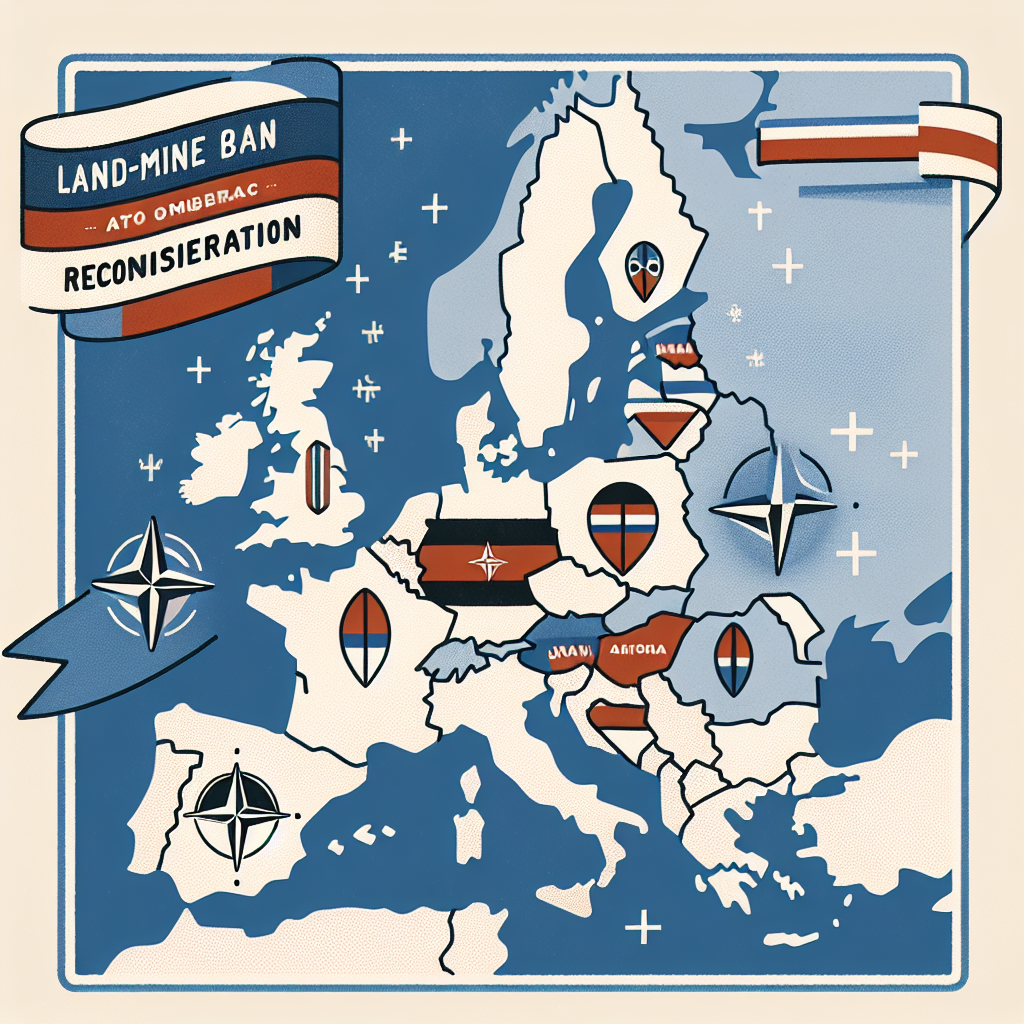European NATO Members Consider Lifting Landmine Ban
European NATO Members Consider Lifting Landmine Ban
Background
In a significant policy shift, several European NATO members are contemplating the removal of a long-standing ban on landmines. This move comes amid growing security concerns and evolving military strategies in the region.
Reasons for Reconsideration
- Security Threats: Rising tensions and potential threats from neighboring regions have prompted a reevaluation of defense strategies.
- Military Effectiveness: Landmines are seen as a cost-effective tool for enhancing border security and deterring potential aggressors.
- Technological Advancements: Modern landmines with self-deactivation features are being considered to minimize civilian risks.
Potential Implications
- Humanitarian Concerns: The potential for increased civilian casualties and long-term environmental damage remains a significant worry.
- International Relations: Lifting the ban could strain relations with countries and organizations advocating for a global landmine ban.
- Policy Precedent: This decision could set a precedent for other NATO members and influence global military policies.
Stakeholder Reactions
The proposal has sparked a mixed response from various stakeholders:
- Proponents: Supporters argue that the strategic benefits outweigh the risks, emphasizing the need for robust defense mechanisms.
- Opponents: Critics, including humanitarian organizations, warn against the humanitarian impact and urge adherence to international treaties.
Conclusion
The consideration to lift the landmine ban by European NATO members highlights a complex interplay between security needs and humanitarian concerns. As discussions continue, the decision will likely have far-reaching implications for regional security dynamics and international military policies.













